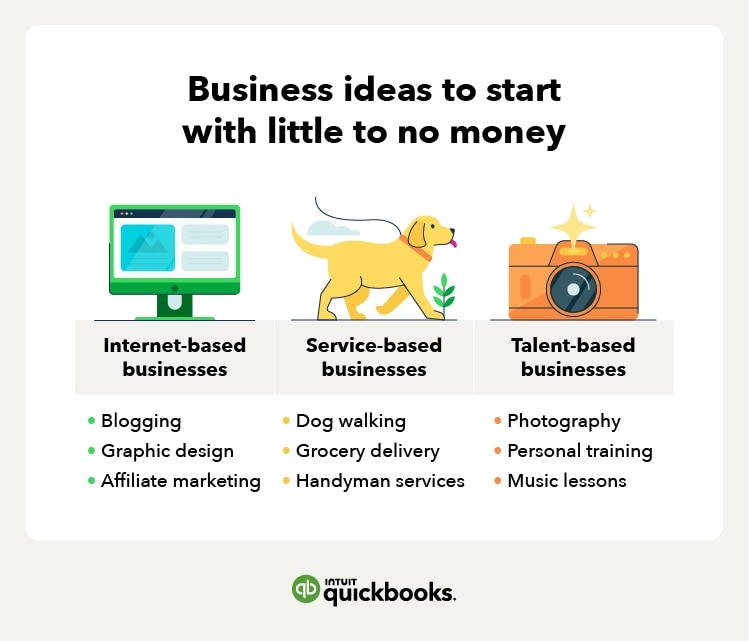How Can I Start A Business With No Money

The allure of entrepreneurship is strong, but the common misconception is that starting a business requires substantial capital. While funding can accelerate growth, numerous avenues exist for aspiring business owners to launch ventures with minimal or no initial investment.
This article explores practical strategies and resources for building a business from the ground up without significant financial backing, focusing on bootstrapping techniques and leveraging available assets.
Identifying Opportunities and Skillsets
The first step is to assess your existing skills and identify unmet needs in your local community or online. What problems can you solve, and what talents do you possess that can be monetized?
Consider freelance services such as writing, web design, social media management, or virtual assistance. Platforms like Upwork and Fiverr connect freelancers with clients seeking specific expertise.
Another avenue is offering specialized consulting or tutoring services based on your professional experience or academic knowledge.
Leveraging Free Resources and Tools
The internet offers a wealth of free resources for entrepreneurs. Numerous online courses, webinars, and templates can equip you with the necessary knowledge to build your business.
HubSpot Academy, Google Digital Garage, and Coursera provide free courses on topics ranging from marketing to business management. These resources can help develop your skills without incurring any costs.
Furthermore, utilize free software and tools for various aspects of your business. Canva offers free design templates for creating marketing materials, and Trello provides a free project management platform. Google Workspace also offers free productivity tools.
Bootstrapping and Minimizing Expenses
Bootstrapping involves starting a business using personal savings and revenue generated from the business itself, minimizing reliance on external funding. It demands resourcefulness and creativity.
Prioritize low-cost marketing strategies such as social media marketing, content marketing, and email marketing. Build a strong online presence by creating valuable content that attracts potential customers.
Consider starting a service-based business with minimal overhead costs. Avoid unnecessary expenses and reinvest profits back into the business to fuel growth.
Bartering and Networking
Bartering, or trading goods and services, can be a valuable tool for conserving cash. Offer your services to other businesses in exchange for their products or services.
Networking is crucial for building relationships and gaining valuable insights. Attend industry events, join online communities, and connect with other entrepreneurs.
According to the Small Business Administration (SBA), strong networks provide access to mentorship, partnerships, and potential customers.
Case Study: From Blogger to Business Owner
Sarah Johnson started a food blog as a hobby with zero investment. She shared recipes and cooking tips, building a loyal following over time.
Eventually, she monetized her blog through affiliate marketing, selling her own e-books, and offering online cooking courses. Sarah transformed her passion into a profitable business without any initial capital.
Her success demonstrates the power of content creation and community building in launching a business on a shoestring budget.
The Rise of the Gig Economy
The gig economy provides numerous opportunities for individuals to earn income and gain entrepreneurial experience. Platforms like Uber, Lyft, and TaskRabbit connect people with short-term jobs and freelance opportunities.
These platforms allow individuals to supplement their income, test out different business ideas, and build a network of contacts.
Furthermore, these platforms can provide a pathway to full-time entrepreneurship by validating a business concept and generating initial revenue.
Potential Challenges and Mitigation Strategies
Starting a business with no money presents unique challenges. Limited resources can make it difficult to compete with established businesses.
Time management is crucial, as you may need to juggle multiple responsibilities. Develop a solid business plan and set realistic goals.
Seek mentorship from experienced entrepreneurs and leverage free resources to overcome obstacles and stay motivated.
Conclusion
Launching a business with no money is challenging but achievable. By leveraging existing skills, utilizing free resources, and embracing bootstrapping techniques, aspiring entrepreneurs can turn their dreams into reality.
The key is to focus on creating value, building relationships, and remaining persistent in the face of adversity. The entrepreneurial spirit thrives on innovation and resourcefulness, proving that financial constraints are not insurmountable barriers.
Remember that building a successful business takes time and effort. Don't be afraid to start small and gradually grow your business over time.


















